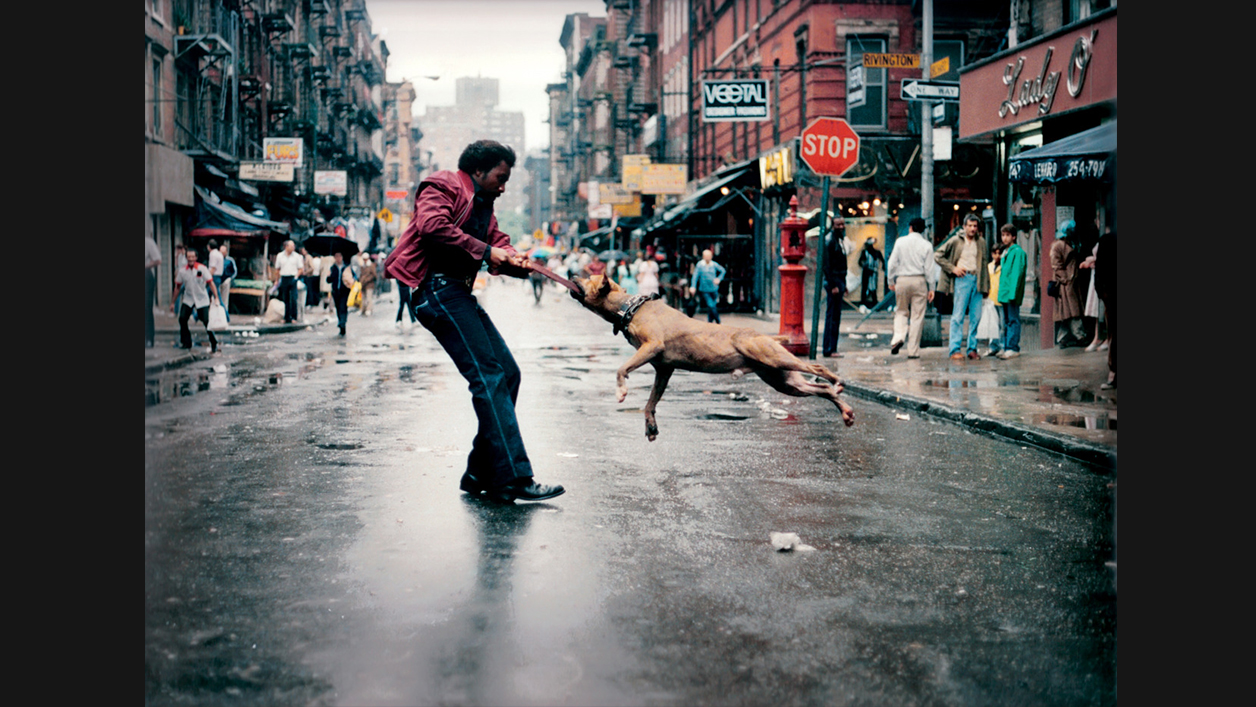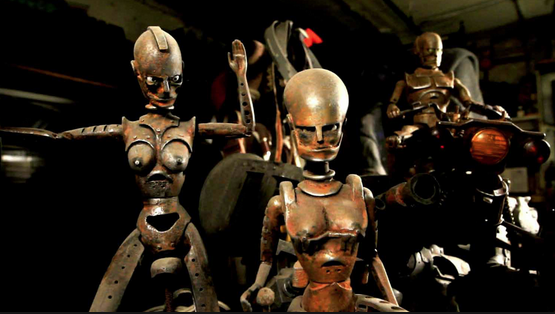RELEASING
As distributor, Cinema Conservancy has released or supported the release of the following films. On a case-by-base basis, we’ve facilitated and/or financially supported the restoration and preservation processes. As part of our mission to make these films accessible to the public, they are now available digitally and remain available to be booked by arthouse cinemas across the country.
The New York Films.
Directed by Manfred Kirchheimer
1965-1975. 16mm
A collection of Manfred Kirchheimer's earlier films featuring New York City as location and inspiration: Colossus on the River (1965), Claw (1968), Short Circuit (1973), Bridge High (1975).
All of these films are available for purchase on the Oscilloscope DVD of Kirchheimer’s Stations of the Elevated.
An indispensable NY filmmaker, a noticer and listener without peer.
—A.O. Scott, The New York Times
Nothing But A Man.
Directed by Michael Roemer
1964 . 92 min . 35mm
Set against the stirrings of the civil rights movement and a rising wave of burgeoning black pride, Nothing But A Man tells the story of Duff, a railroad section hand, who is forced to confront racial prejudice and self-denial when he falls in love with Josie, an educated preacher’s daughter. Called "one of the most sensitive films about black life ever made in this country" (The Washington Post), the film explores the painful nuances of life in the 1960s South, and themes of fatherhood and sacrifice.
"A landmark of independent filmmaking! Its historical import as a peripheral civil-rights document can’t be understated… seeing the film today, it’s impossible not to gauge the distance traveled and note the miles left to go." — David Fear, Time Out New York
"A magnificent lyrical study of the graffiti-covered subway trains of New York." —The Independent
Stations of the Elevated.
Directed by Manfred Kirchheimer
1981 . 45 min . 16mm
Stations of the Elevated is an urban symphony directed, produced and edited by Manfred Kirchheimer. Shot on lush 16mm color reversal stock, the film weaves together vivid images of graffiti-covered elevated subway trains crisscrossing the gritty landscapes of the 1970s, to a commentary-free soundtrack that combines ambient city noise with jazz and gospel by Charles Mingus and Aretha Franklin. Gliding through the South Bronx, Brooklyn, Queens and Manhattan - making a rural detour past a correctional facility upstate - Stations of the Elevated is an impressionistic portrait of and tribute to a New York that has long since disappeared.
The Black Balloon.
Directed by Benny and Josh Safdie
2012 . 21 min . 35mm
While moving 40 kids across six New York City blocks, a stressed man accidentally loses a bouquet of a hundred balloons. A lone black balloon floats through the streets, observing that people are complicated creatures with extreme highs and lows. The Black Balloon uses elements of children’s cinema and science fiction to examine humanity from the perspective of a toy.
"Only filmmaking frères Josh and Benny Safdie of Daddy Longlegs fame could have come up with a 21-minute-long sci-fi urban fable about a rogue balloon in New York City." — Kim Adelman, Indiewire
The Color Wheel . Directed & Produced by Alex Ross Perry
2012 . 83 min . 16mm
The Color Wheel is the story of JR. A transient, aspiring news anchor, she forces her younger brother Colin to join in on a roadtrip to move belongings out of her former professor/lover’s apartment. As they traverse the fog-shrouded highways of New England in their beat-up Honda, they’re trailed by chaos, in the form of uncomfortable run-ins with old classmates and revisiting family history. It’s only a matter of time before JR and Colin arrive at an unsettling resolution that puts decades of half-baked sibling rivalry to rest, in this comedic symphony of disappointment and forgiveness.
“Sly, daring, genuinely original and at times perversely brilliant.”
—A.O. Scott, The New York Times
Hubley Centennial. Directed by John and Faith Hubley
2012 . 74 min . 35mm
Hubley Centennial is a program of 8 short films by animators John and Faith Hubley, in which each film is presented in a new 35mm print. The series celebrates John's 100th birthday, and the enormous influence he and Faith’s mid-century works had on animation. Included in the program: Adventures of an *, Tender Game, Moonbird, The Hat, Eggs, Windy Day, Of Men and Demons, and Urbanissimo.
"They were pioneers, as much as Gillespie and Miles Davis and Charlie Parker were in music, and their influence is enormous...they helped create something very rare in any art- a new way of seeing." —John Sayles , The Believer Magazine
Jamel Shabazz Street Photographer.
Directed & Produced by Charlie Ahearn
2012 . 74 min . DCP
This documentary by Charlie Ahearn (Wild Style, Doin’ Time in Times Square) documents the work of street photographer Jamel Shabazz (Back in the Days, A Time Before Crack), who captured the rise of New York hip-hop through his body of work focusing on the residents of 1970s Brooklyn. Through a mixture of vintage still photography and interviews conducted in the 2000s, Ahearn touches on the social and economic changes of the city, placing Shabazz at the center of a narrative throughline that spans generations.
"His photographs' uncompromising, straight-ahead dignity...lingers long in the mind." —Ronnie Schieb, Variety
Little Fugitive.
Directed by Morris Engel, Ruth Orkin, Ray Ashley
1953 . 80 min . 35mm
This Academy Award-nominated and Venice Film Festival Silver Lion-winning film famously inspired Truffaut's early works with its handheld style and focus on children. Left at home as his mother visits their ailing grandmother, 7-year-old Brooklynite Joey flees to Coney Island to hide after a mischievous prank leads him to believe he's killed his older brother Lennie. Joey earns a few bucks from depositing soda bottles, and indulges himself with amusement rides and junk food. As the weekend progresses, Joey finds shelter under the boardwalk, and Lennie begins an equally adventurous search for his missing kid brother.
"Our New Wave would never have come into being if it hadn't been for the young Morris Engel, with his fine Little Fugitive." —François Truffaut
Meaning of Robots. Directed by Matt Lenski
2011 . 4 min. Digital
This short film profiles the benevolent Mike Sullivan, who has been in the process of shooting a stop-motion robot sex film in his New York City apartment for the last ten years. Obsessed with the meticulous construction of the miniature robot porn stars, his apartment now overflows with thousands, leaving him only tiny paths to navigate and no place to film his epic.
"As fascinating as it is hilarious." —Wired
Northern Lights.
Directed by John Hanson, Rob Nilsson
1978 . 95 min . 35mm
Northern Lights dramatizes the story of a group of immigrant Scandinavian farmers in North Dakota who founded the The Nonpartisan League in the early 1900s. The League, one of the most successful and little known Populist movements in US history, existed on a platform of Socialist values opposed to the control of labor by bankers and suppliers. Framed as the reminiscences of the 94 year old real-life labor leader Henry Martinson, and filmed in the actual locations of the events dramatized, Northern Lights captures the distinct beauty and harsh reality of the immigrants’ lives. Made with professional and nonprofessional actors, and produced by the collective Cine Manifest, the film had a grassroots release in North Dakota and Minnesota before going to the Cannes Film Festival and touring the rest of the United States.
"One of this year’s real discoveries! A small miracle on a smaller budget..." —Roger Ebert, Chicago Sun Times










